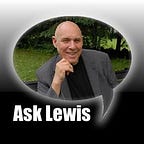How to Learn Game Based Thinking
A major mind shift for winning the game of life
I have always had a strong interest in Game Theory and the creation of effective life strategies after seeing Ron Howard’s movie A Beautuful Mind. I began to explore how this theory, a theory in which researchers have won multiple Nobel Prizes, might be applied to the concept of best practices* in business and as a tool for solving problems. Game theory was originally created to address economic problems, but understanding how this works on a basic level is quite fascinating.
Game Theory is especially invaluable where external factors are the primary obstacle. You see, most economic theory focuses on the process and conditions under which individuals or organizations minimize their own costs and maximize their own benefits in those markets where their individual actions do not materially affect others –This is known as “perfect competition”. In life, we seldom encounter perfect competition. More often than not, there will be some healthy competitive, and/or hierarchal conflict when economic decisions are to be made. In such a situation Game theory is an especially valuable tool. One party’s actions may induce a reaction from others. Game Theory will help all those involved to achieve the greatest benefit at the lowest cost.
One of the most basic and easy to understand explanations of game-based thinking, and classical game theory is a highly influential book by religious scholar James P. Carse titled “Finite and Infinite Games”. In the book, Carse presents a way of looking at actions in life as being a part of at least two types of what he describes as “games”,
1. finite
2. infinite.
Both of these types of games are played within rules, as agreed upon by the participants; however, the meaning of the rules is different for the two types of games. Carse’s book stresses a non-serious (or “playful”) view of life on the part of “players”, referring to their choices as “moves”, and societal constructs and mores as “rules” and “boundaries”. Though he regularly employs common terms in specialized ways, he frames them as associated with finite or infinite play & players.
For Carse boundaries are “rules” that we must stay within when playing a finite game, in contrast with horizons, which change with the player, and are constantly shifting as one “plays”. Clearly Carse has based virtually all of his ideas on classic game theory but has made it much more accessible for the general population. In Carse’s model a “finite game” is played with the purpose of winning (thus ending the game), while an infinite game is played with the purpose of continuing the play.
Carse’s concept of finite games is quite similar to what is known as a “zero-sum game” in classical game theory. Both have a specific beginning and ending and are played with the goal of winning. A finite game, as is so for a zero-sum game, is played within the context of its rules, with a winner of the competition being declared and receiving a victory. The rules exist to ensure the game is finite — that the game ends at some point. Examples are engaging in war, sports, board games, video games, debates, earning a degree from an educational institution, or belonging to an organization.
Once we decide to apply game-based thinking to our choices we are likely to see competitive forces that we never noticed before. This is where the concept of finite game comes into play. Rather than making choices intuitively and organically, what is commonly called “going with the flow” choices must have intention behind them. This intention, combined with knowledge that free choice in various situations is a more effective life strategy than blaming external forces for our lot is key to being an effective “player”. When an end game is defined choices are automatically seen as conscious and voluntary. This is the very opposite of the thinking that dominates when a game is seen as infinite i.e., a game with no end. Here continued participation in a round of the game is involuntary.
Both Research Sociometry and Applied Sociometry exist to produce greater spontaneity and creativity both with individuals or groups in game-based scenarios. This process ultimately leads, it is hoped, to more effective, efficient and productive strategizing and decision making.
Question:
Explore your life and imagine how various aspects of you daily activities would change if seen from the perspective of game-based thinking?
A recommended film on game-based thinking involving complex human interactions is Changing Lanes.
Here is the trailer
Here is a Medium story on this subject @mikekarnj
Here is one from the archives @LewisCoaches
This story is an excerpt from my Module for making the best choices, from my online Course, “The Self Improvement Lifestyle”. To learn more email me at LewisCoaches@gmail.com
Author: Lewis Harrison is an executive coach and a professional futurist (forecaster). He is the creator of the Ask Lewis Mentoring Method as well as HAGT — Harrison’s Applied Game Theory. He is the Executive Director of the International Association of Healing Professionals an educational organization that offers programs around the world in Intentional Living. He is also Independent Scholar, with a passion for knowledge, personal development, self-improvement, creativity, innovation, and problem-solving. You can read all of his Medium stories at Lewis.coaches@medium.com.
For a decade, Lewis was the host of a humor-based Q & A talk show on NPR (National Public Radio) affiliated WIOX FM in NY.
“I am always exploring trends, areas of interest, and solutions to build new stories upon. Please share this article with others. It is appreciated.
If you have any ideas you would like me to write about, just email me at LewisCoaches@gmail.com or check out all of my books, blogs, and videos through my portal www.asklewis.com
